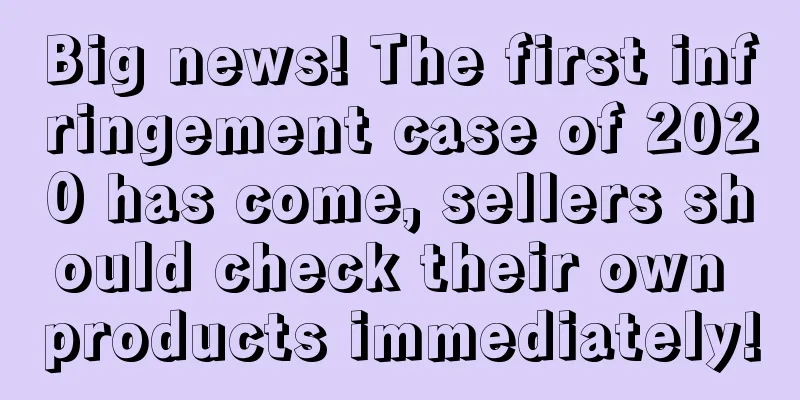Using Google Shopping to expand e-commerce business series ③: How to set up Merchant Center

|
Google Shopping ads are displayed as organic listings with images above or to the side of the text ads on the search results page. But unlike text ads, Google Shopping ads always come with images, prices, and product descriptions, so consumers can buy directly, and the effect is more immediate than text ads. So how can sellers use Google Shopping ads to expand their e-commerce business? In the third article in the series, we will explain how to set up the Merchant Center, the backend of Google Shopping ads. To run ads on Google Shopping, sellers need to have a Merchant Center account and import product data, which can be confusing if not handled properly. So how do you set up Merchant Center?
To set up Merchant Center and prepare to run Google Shopping campaigns, you need to do the following: (1) Create a free Google Merchant Center account; (2) Add your business; (3) Verify the website and claim ownership; (4) Export products from the shopping cart; (5) Configure Google Merchant Center options; (6) Link GMC to your Google Ads account. 1. Create a free Google Merchant Center (GMC) account . To create a GMC account, please sign up on the "Google for Retail" page. 2. Add company and website information . The website may be unverified at first:. 3. Verify the website and claim ownership through several options: 4. Export products from your shopping cart . Some platforms, such as Shopify, BigCommerce, Volusion, Miva, may have built-in functions and apps to do this. You can also integrate and export products directly without setting up a data feed in GMC. Open source shopping carts, such as PrestaShop, OpenCart, WooCommerce, etc., may require paid plugins or third-party tools to export products, track sales, and perform other important functions. But pay attention to the versions and technical support of these plugins, they may be unreliable or of poor quality, hindering the smooth operation of your campaigns. To export products without direct shopping cart integration, a Primary data feed is required, which provides various setup options. You can manually export your products into a file on your computer and then upload it to GMC manually. You can even use Google Sheets. Product exports can also be made via qualified URLs, such as pages on your website, from which GMC will periodically fetch products. Products in GMC will expire after 30 days. Therefore, regular and scheduled feed updates are essential. If product information such as inventory and prices change rapidly, it is best to update daily or more frequently. Once uploaded, the dashboard diagnostics will show the status of your account and products, as well as any issues, warnings, or review failures, and help you resolve them: Warnings and review failures may be due to violations of Google policies, no mobile landing page, or data loss. 5. Configure GMC options. Merchant Center configuration options vary by country or even state, tax settings are an example, it is best to keep it as simple as possible. Configuration options can be set for all products or individual products at the GMC account level, or explicitly set by product in data feeds, shopping cart integrations, or exports. Delivery services and regions also vary from country to country. Depending on size, shape, weight, service provider, delivery time, price, etc., this can get extremely complex to set up. For orders below a certain value threshold, it’s best to charge no shipping or a flat shipping fee. Shipping costs are often a big factor in cart abandonment, so choose carefully. Finally, configure Google Shopping ads for adult users and comparison shopping services in Europe. Due to recent EU policies, Google is forced to offer comparison shopping partners that can only offer discounts up to 25% off in European countries. Once your Google Shopping campaign is running successfully and ready for optimization, you can consider using advanced options such as product reviews and customer reviews: The advanced settings in the upper right corner include time zone, language preference, account association and users, and other options: 6. Link GMC to your Google Ads account. The last step is to link Google Shopping ads to your Google Ads account using the “Acount linking” menu option. Text✎ Fang Xiaoling/ |
<<: Is it difficult to get positive feedback on Amazon? Here are 6 ways to ask for reviews
Recommend
What is suchprice? suchprice review
Suchprice is committed to collecting international...
The most complete mind map of Amazon backend operations in history
What I share today is a mind map of Amazon advert...
What is eClincher? eClincher Review
eClincher enables you and your team to accelerate ...
Home Depot announces Q1 results, with revenue of $37.257 billion, a 20-year low
It is learned that according to foreign media repo...
Wish launches flat-rate shipping service for US customers
It is learned that on February 1, Wish announced t...
Etsy's new traffic-driving strategy! New buyers will have a chance to win a $500 grand prize!
According to a marketing email sent by Etsy to use...
How popular is short video shopping? Google launches video shopping platform Shoploop
According to foreign media reports, Google recentl...
Amazon has won the battle for Indian retail dominance, but it still has concerns
Online retail giant Amazon has a love-hate relatio...
Walmart will monopolize 27.6% of the U.S. grocery e-commerce market! Continue to lead Amazon!
<span data-docs-delta="[[20,"获悉,根据eMarket的...
What is Dafiti? Dafiti Review
Dafiti is Brazil's leading online fashion reta...
Passenger and cargo planes are out of service! Just now, the United States took a fatal approach...
Recently, the Emergency Committee of the World He...
What is the ExportEasy M2C Supply and Marketing Platform? Evaluation of the ExportEasy M2C Supply and Marketing Platform
M2C supply and marketing platform is a value-added...
What is Vinted? Vinted Review
Vinted is a second-hand clothing trading platform ...
Classic! The operational strategy for promoting new products does not consider losses!
text Traffic is very important to Amazon sellers....
Millennials become the main consumer! U.S. holiday shopping hot spots
It is learned that recently, PwC released the 2022...









